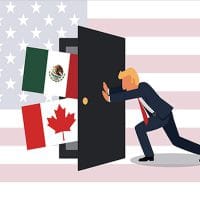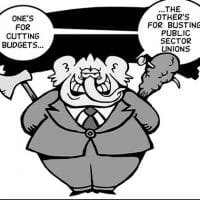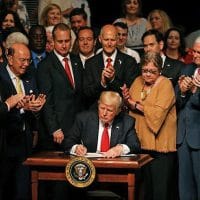-
Empire Files: Abby Martin meets the Venezuelan opposition
Abby Martin goes on the deadly front lines of the anti government protests in Venezuela and follows the evolution of a typical guarimba—or opposition barricade. She explains what the targets from the opposition reveal about the nature of the movement and breaks down the reality of the death toll that has rocked the nation since the unrest began, and how a lynch mob campaign came after her and the Empire Files team for reporting these facts.
-
Cuba: critical thought in the socialist transition
The distance that separates us today from the first issue of Pensamiento Crítico (Critical Thought) is exactly the same as the distance between this revolutionary, intellectual adventure and the October Revolution: half a century. The coincidence in this case is not limited to random chance.
-
Fire and riddles at Hamburg
I wonder whether those so horrified today were sickened then at US attacks on others’ sovereignty. There has been lots of masquerading, I think, by disguised provocateurs or indignant sovereignty defenders. Their threats against even hesitant moves toward dialogue, disarmament, de-escalation in the world’s charged atmosphere are what truly sicken me—and frighten me!
-
Noam Chomsky on Fascism, Trump, and the state of the union
Over the past few months, as the disturbing prospect of a Trump administration became a disturbing reality, I decided to reach out to Noam Chomsky, the philosopher whose writing, speaking and activism has for more than 50 years provided unparalleled insight and challenges to the American and global political systems. Our conversation, as it appears here, took place as a series of email exchanges over the past two months. Although Professor Chomsky was extremely busy, because of our past intellectual exchange, he graciously provided time for this interview.
-
Wonder Woman is a hero only the military-industrial complex could create
For a while I have been pondering whether to write a review of the newly released “Wonder Woman,” to peel back the layer of comic book fun to reveal below the film’s disturbing and not-so-covert political and militaristic messages.
There is usually a noisy crowd who deride any such review with shouts of “Lighten up! It’s only a movie!”–as though popular culture is neither popular nor culture, the soundtrack to our lives that slowly shapes our assumptions and our values, and does so at a level we rarely examine critically.
-
ICE officers told to take action against all undocumented immigrants encountered while on duty
The head of the Immigration and Customs Enforcement unit in charge of deportations has directed his officers to take action against all undocumented immigrants they may cross paths with, regardless of criminal histories. The guidance appears to go beyond the Trump administration’s publicly stated aims, and some advocates say may explain a marked increase in immigration arrests.
-
Venezuela: ‘our revolutionary democratic experience is at stake’
Revolutionary activist and sociologist Reinaldo Iturriza has spent many years working with popular movements in Venezuela and writing on the rise of Chavismo as a political movement of the poor. He also served as Minister for the Communes and Social Movements, and then Minister for Culture in President Nicolas Maduro’s cabinet between 2013 and 2016.
-
Trump is trying to make NAFTA even worse
Many on the Left have been deeply critical of the North American Free Trade Agreement (NAFTA) since before it was fast-tracked into law by former President Bill Clinton in 1994. Now, President Donald Trump’s current plan to renegotiate NAFTA is poised to make the massive trade deal even worse.
-
Ransacking the public sector
Almost 50% of union members in the United States today work in the public sector. By necessity, they will have to play a major role in the rebuilding of organized labor. But like private sector unions before them, government employee unions face circumstances threatening their very existence.
-
Big shots in Hamburg
Years ago the 35th US president made a speech in Germany, four words of which, in American-accented German, remain famous: “Ich bin ein Berliner!”—“I am a Berliner!” That was John F. Kennedy. Will the 45th president, soon to visit Germany’s second city, emulate him and tweet “I am a Hamburger! Wow!”
-
Secular Stagnation
The fundamental changes I would advocate are those that would: dramatically boost worker power; secure a progressive and growing funding base for a needed expansion of public housing and infrastructure and public spending on health care, education, and transportation; and end the production and use of fossil fuels and significantly reduce greenhouse emissions.
-
Useful idiots who undermine dissent on Syria
There has been much disingenuous criticism of those, like me, who question why the western corporate media have studiously ignored the latest investigation by renowned journalist Seymour Hersh on Syria. Hersh had to publish his piece in a German newspaper, Welt am Sonntag, after the entire US and UK media rejected his article. There has still been no mention of his investigation more than a week later.
-
New Florida law lets any resident challenge what’s taught in science classes
Any resident in Florida can now challenge what kids learn in public schools, thanks to a new law that science education advocates worry will make it harder to teach evolution and climate change.
-
David Harvey: Marx, Capital and the madness of economic reason
David Harvey, one of the most influential figures in geography and urban studies, and among the most cited intellectuals of all time across the humanities and social sciences, delivered a featured lecture, “Marx, Capital and the Madness of Economic Reason.” at the 2017 AAG annual Meeting.
-
Media’s propaganda war on Syria in full flow
If you wish to understand the degree to which a supposedly free western media are constructing a world of half-truths and deceptions to manipulate their audiences, keeping us uninformed and docile, then there could hardly be a better case study than their treatment of Pulitzer prize-winning investigative journalist Seymour Hersh.
-
The trouble with geoengineers “hacking the planet”
To be sure, I can actually imagine a world in which a small and strictly limited amount of albedo modification could sensibly be deployed as a complement to strong and largely successful efforts to bring carbon dioxide emissions towards zero, accompanied by successful deployment of technologies for actively removing the gas from the atmosphere. But that would be a world with a truly exceptional level of international agreement, fact-based decision-making, and cooperation towards shared goals. A world where somebody like Donald Trump can become president of a superpower is not that world.
-
Seymour Hersh dishes on new exposé upending the official story about Trump and Syrian chemical attacks
Seymour Hersh is a Pulitzer Prize-winning journalist who famously exposed the My Lai Massacre in Vietnam, and more recently, the U.S. military’s abuse of detainees at Abu Ghraib prison. This weekend, Hersh reported that the alleged chemical attack in Idlib, Syria, this March was not perpetrated by the Syrian military, as the Trump administration has claimed
-
US Cuba policy has been hijacked by Cuban-Americans
US policy toward Cuba (Trump reverses Obama’s Cuba deal, limiting travel and trade, 17 June) has been hijacked by a clique of Cuban-American politicians, who have sold their support in Congress to President Donald Trump. Above all, these individuals – and Trump – have demonstrated the corrupt and clientelist nature of the US political system. Can such a system serve as a symbol of “freedom” to anyone in the world?
-
Izzy out loud
This year, Ramadan—the ninth month of the Islamic year, in which observant Muslims fast to commemorate the revelation of the Quran—happens to coincide with most of Gay Pride month. Quiet as it’s kept, there are uncounted numbers of queer Muslims in the gay community. One of them is Izzadine Mustafa.
-
W. E. B. Du Bois’s revolutions
“Capitalism cannot reform itself; it is doomed to self-destruction. No universal selfishness can bring social good to all. Communism—the effort to give all men what they need and to ask of each the best they can contribute—this is the only way of human life.” With this sober stroke of his insurgent pen, the 93-year-old scholar joined the Communist Party.



















